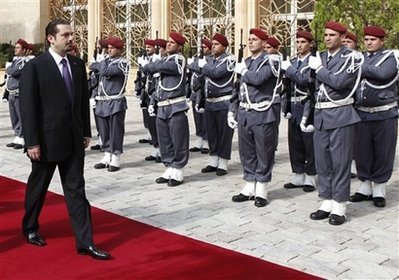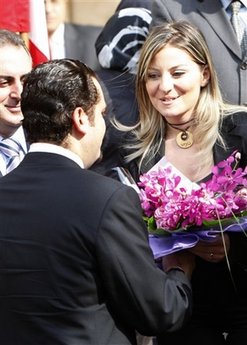رأى أن أمام اللبنانيين فرصة حقيقية لإعادة بناء الدولة
النائب فريد الخازن "للأنباء" :
ـ تكتل "التغيير والإصلاح" لديه النية الحسنة والإرادة الكاملة للتعاون بشكل إيجابي وكبير مع الرئيس الحريري
ـ العاصفة التي مرّ بها لبنان خلال السنوات الأربع الفائتة بدأت بالإنحسار وأصبح الوضع الداخلي أكثر هدوءا
رأى عضو تكتل "التغيير والإصلاح" النائب د. فريد الخازن أنه وللمرة الأولى تتشكل في لبنان حكومة تشارك فيها جميع الاطراف السياسية، مقارنة مع الحكومات السابقة لها، بدءا من الحكومات التي تعاقبت على الحكم خلال سنوات الوصاية والتي لم تكن تملك القرار اللبناني، مرورا بحكومة الرئيس السنيورة الأولى في العام 2005 حيث أُقصيَ عن المشاركة بها فريق سياسي كبير يمثل شريحة واسعة من اللبنانيين، وصولا الى حكومة الرئيس السنيورة السابقة التي تألفت نتيجة لإتفاق الدوحة على أثر أزمة سياسية وشعبية حادة .
ولفت النائب الخازن في تصريح "للأنباء" الى أن الحكومة الحالية برئاسة سعد الحريري، تشكل مرحلة إنتقالية حقيقية تتيح أمام اللبنانيين فرصة العودة الى المشروع الوطني الاساسي، والمتمثل بإعادة بناء الدولة على أسس مختلفة عما كانت عليه في السابق، وأهمها الإصلاحات الإدارية والسياسية، مشيرا الى أن حكومة الرئيس الحريري قد تستطيع ملامسة المسار المذكور فيما لو أراد اللبنانيون السير به حتى تحقيق الأهداف المرجوة منه .
وردا على سؤال أعرب النائب الخازن عن إعتقاده بأنه لا بد من أن يكون هناك إنسجام بين الوزراء داخل الحكومة، مؤكدا أنه فيما خص تكتل "التغيير والإصلاح" فإن هذا الأخير قد تجاوز كل الخلافات الماضية وستكون لديه النية الحسنة والإرادة الكاملة للتعاون بشكل إيجابي وكبير مع الرئيس الحريري للسير معه يدا بيد في معالجة العناوين السياسية الشائكة والملفات المأزومة والمعلقة والمطلوب فيها الإصلاح الحقيقي بشكل جذري وحاسم







